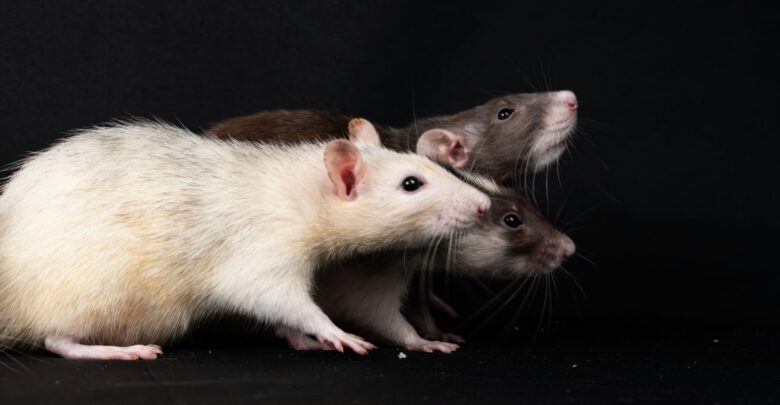 Nikolett Emmert
Nikolett EmmertDespite the occasional post on the uAlberta subreddit claiming otherwise, Alberta has maintained its rat-free status for 75 years. And while the U of A isn’t home to rats, it is home to an anthropology professor who studies them.
Darcie DeAngelo was doing her Master’s degree on military wasteland and minefields when she fell into researching rats. In Cambodia, rats are used to detect landmines by the scent. They’re light enough to be able to safely walk across landmines without detonating them.
“The rat was a different actor in the minefield,” DeAngelo said. “So it created a different choreography of landmine detection.”
After that, she began collecting stories about rats and said “everyone was sort of talking to [her] about rats.”
Part of her research in human-pest relations is looking at what we consider as pests and how we can understand them anthropologically.
DeAngelo explained that rats have been companions with us as humans have spread across the globe.
“Rats only thrive because humans give them habitats to thrive,” she said.
Our love-hate relationship with rats
Rats spread with the rise of cities in Europe, and came to North America on ships. They’re often associated with spreading disease and being a disturbance, but they’ve also been used in labs or have been sold and bred as pets.
As a generalist species, meaning it’s highly adaptable to different environments, rats and our relationship to them are often shaped by social structures.
“They have social structures so that whenever you interact with a rat from its [youth], it’s called a kit, … it kind of interacts with the human in a kind of cuddly way because it’s a family,” DeAngelo explained. “So they think of the human as part of their family.”
This kind of interaction makes it easy for humans to feel attached to them.
“We have this kind of unique disgust and also attraction to these rats,” she said.
And although they may be cute and cuddly, rats have a reputation for spreading disease for a reason.
“They’re responsible for many diseases, like hantavirus,” DeAngelo explained. “The other thing is that with close proximity to animals, zoonotic diseases — the transfer of viruses from an animal to a human — can happen more easily in places where animals live in cities.”
Can Alberta stay rat-free?
Thankfully for Albertans, the province has kept rats out. DeAngelo said this has been helped by the geography of Alberta. Being so far north and protected by the mountains on the west and south has helped Alberta achieve and maintain its rat-free status.
But it is getting more difficult to maintain that status as the impacts of climate change are felt. Alberta’s winters are getting warmer, and on top of that, Alberta’s population is growing.
And as new people come to Alberta, they may not be aware of the province’s rat-free status.
“A lot of people didn’t even realize that Alberta’s rat free because so many people just accepted rats as a matter of human life,” DeAngelo said. “So, they won’t alert a rat control program. That’s why the Alberta Rat Control Program has started a new campaign called ‘Rat on Rats’ so that people can kind of reinvigorate the awareness of rodent management in Alberta.”
But despite these challenges, DeAngelo said its totally possible for Alberta to remain rat free.
“It depends a lot on people’s participation in the alerts and their awareness of the rat free campaigns,” she said. “And, I also think it depends on the kind of waste management that happens in Alberta.”
Alberta is also unique because it has a legal status for pests, which isn’t something found elsewhere. This makes it so that people are responsible for controlling pests.
“Rules make a difference and regulations make a difference.”
DeAngelo released her second book about rats, How to Love a Rat: Detecting Bombs in Postwar Cambodia in September 2024. Audrey’s bookshop is downtown Edmonton is also hosting a book talk with DeAngelo on October 21.




